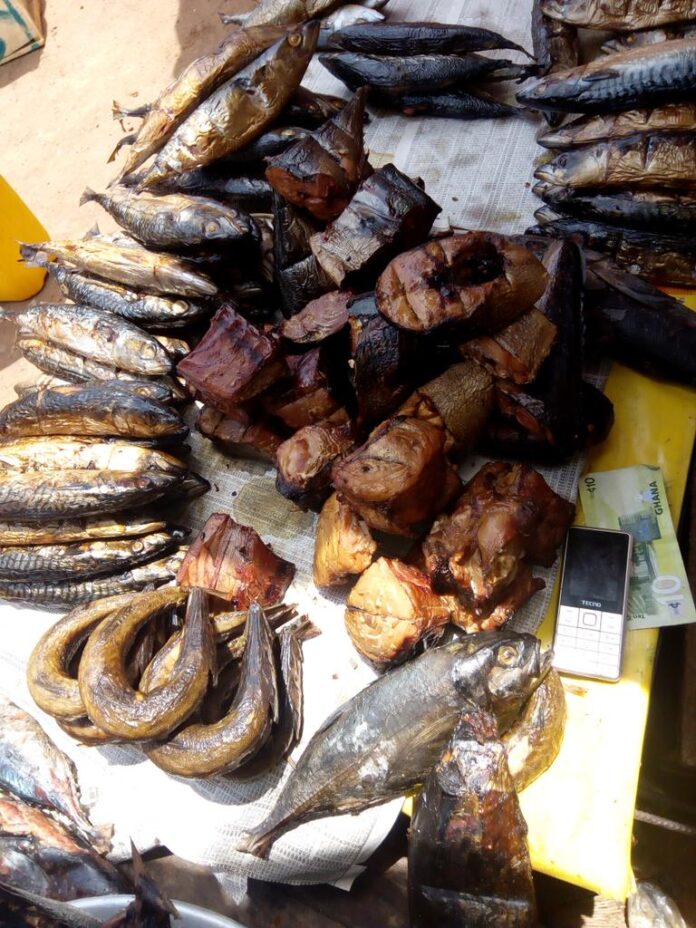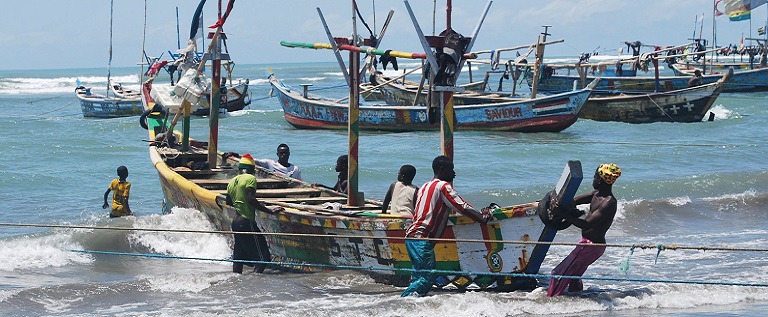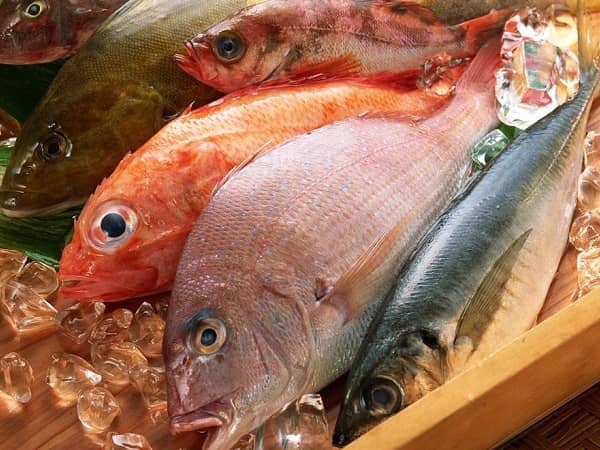
Ghana’s fisheries sector plays a significant role in the socio-economic development of the nation.
However, fisheries stakeholders have raised an alarm that Ghana’s fisheries are on the verge of collapse.
To assess the issue, Starnewsonlines western region correspondent Emmanuel Ohene Djan, interviewed stakeholders to understand the status of Ghana’s fisheries sector.
In an interview with, Mr. Kyei Kwadwo Yamoah, Programme Manager, Friends of the Nation a fisheries advocacy NGO. Mr. Yamoah explained that Ghana’s fisheries play an important role in employment, food security, nutrition and poverty reduction. And about 10% of Ghanaian population (3 million people) are fully or partly dependent on fisheries. He added that fish consumption also provides essential fatty acids, high-quality proteins, and important vitamins and minerals, and thereby help prevent malnutrition, developmental disorders and disease. Also, the fisheries sector plays a very important role in poverty alleviation in Ghana.
Mr. Yamoah lamented that the importance of Ghana’s fishery is however being loss. He explained that the small pelagic fish resources, particularly sardinella which is locally called “eban” in fante or Emane in Twi, are on the verge of collapse. He said that annual fish landings have been in decline for more than a decade and bumper harvest has not been recorded in a long time.
He said the drastic decline in fish landings is due primarily to overcapacity of the fishing fleet, overfishing and Illegal Unreported and Unregulated (IUU) fishing.
Mr. Yamoah explained that there is the lack of political will and this has allowed widespread illegal fishing and as a result, fisheries resources are depleting at an alarming rate. He recommended the need for urgent effort by government to enforce the fisheries laws by providing the political support and also resourcing the Marine police and the fisheries Enforcement Unit (FEU).

Mrs. Emelia Abaka-Edu, Vice President of National Fish Processors and Traders Association (NAFPTA), in her interview explained that, fish landings are all time lowest and many fishers now spend money and resources but get fewer fish catches. She said because of this poverty has been on the rise in fishing communities and they poor each day with no alternative livelihood. She added that women fish monger and processors have become indebted to financial institutions where they have gone for loans. She explained that recent attempts by Ministry of Fisheries and Aquaculture Development (MOFAD) to halt the decline was to institute Closed fishing season. But the fundamental cause of the decline which is the illegal fishing should be addressed before closed season and other fisheries management practices can have positive impact.

She recommended the need for effective enforcement of the fisheries laws so that all illegal fishing could be halted so that the fish stock can rebound. She advised the government to work with the fisheries association and the local fisher folk’s leaders to address the challenges of the sector. She also advised that the COVID-19 Stimulus package needs to be made accessible to fisher folks to support them during this pandemic.
George K. Brown Amissah, a Monitor for BUSAC, said there is the urgent need to increase demand for political and social will for effective and proper implementation of the fisheries laws.
He explained that fisheries stakeholders including fisher’s association, CSOs and Media have all not been adequate to provide the necessary checks to address the weakness in the sector.
He noted that it is for this reason that the BUSAC FUNDs with funding from USAID and DANIDA is supporting the advocacy for effective implementation of the fisheries laws. He explained that the goal of this proposed intervention is to contribute to the sustainable management of Ghana’s fisheries sector that will continue to provide food and services that will generate long term socio-economic benefits to Ghana while sustaining the marine biodiversity.
Article written by: Emmanuel Ohene Gyan, EIB Correspondent in the Western region
